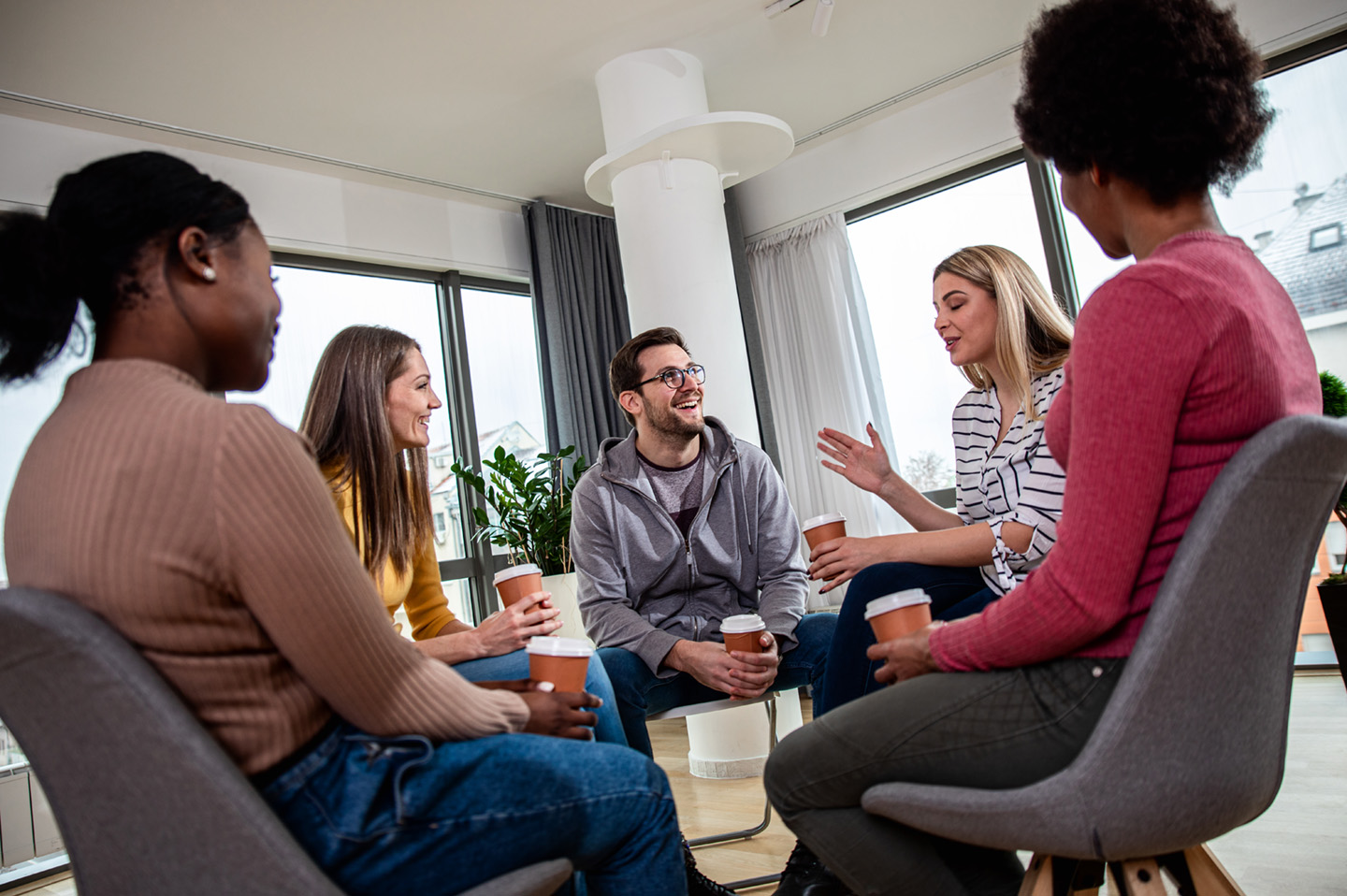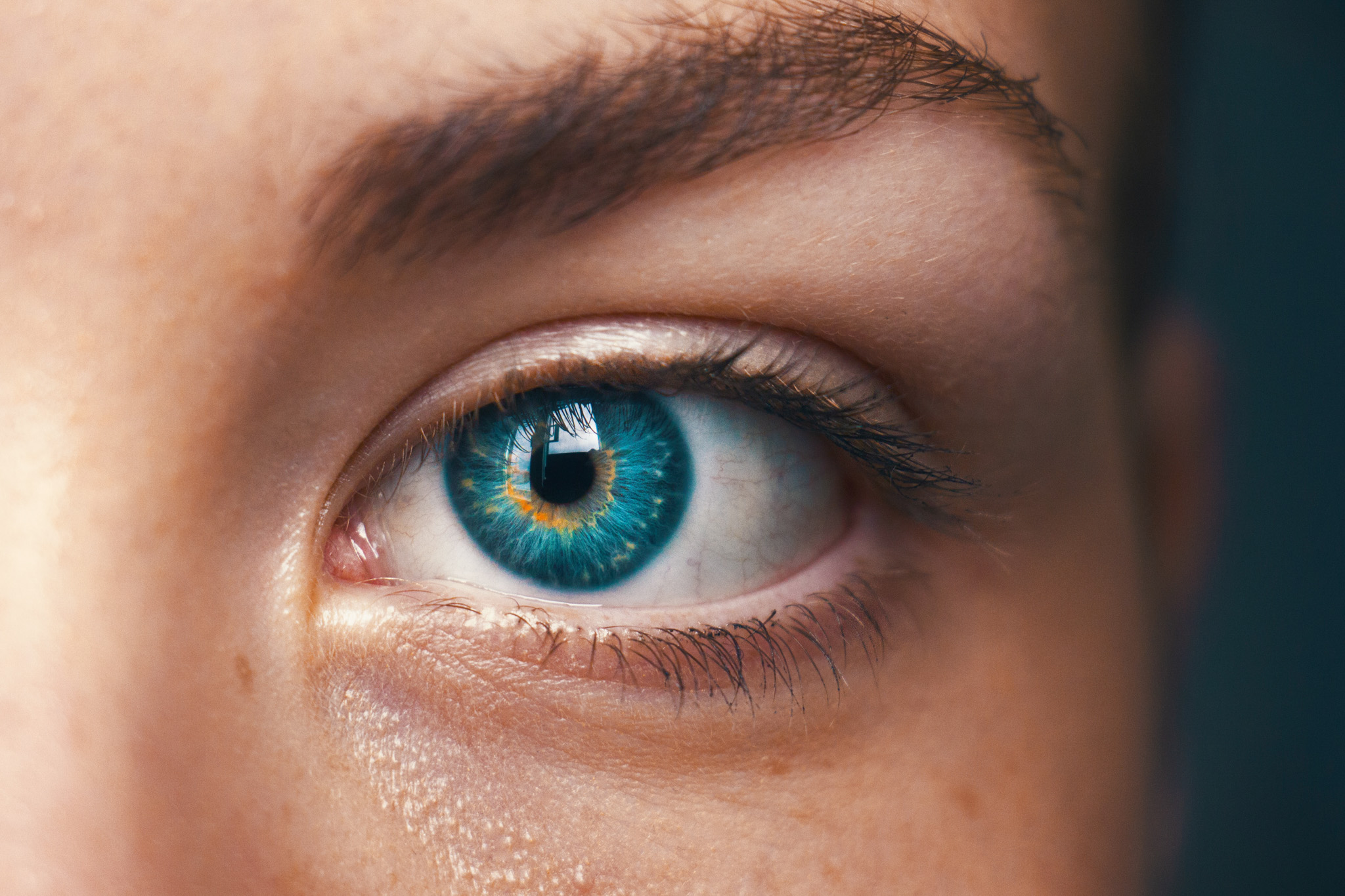Village counselors use a wide variety of therapy approaches and models to help our clients reach their goals.
Many of our clinicians have advanced training in specific therapy models, including:
- Attachment and Biobehavioral Catch-up (ABC)
- Brainspotting
- Child-Parent Psychotherapy (CPP)
- Cognitive Processing Therapy (CPT)
- Dialectical Behavioral Therapy (DBT)
- Eye Movement Desensitization and Reprocessing (EMDR)
- Parent-Child Interaction Therapy (PCIT)
- Cognitive Behavioral Therapy (CBT)
- Trauma-Focused Cognitive Behavioral Therapy (TF-CBT)
- Polyvagal Theory
In addition to different approaches to therapy, The Village offers a number of programs and classes that may be helpful to individuals or families. Offerings vary by location and time of year and may include:
- Love and Logic Parenting
- Pride Teens
- Girls 360º Group
- DUI Seminar + Substance Use Education
- Doing Your Best Today (DBT Group for Adolescents – Moorhead)
To schedule an appointment with a Village therapist, call the office location that is most convenient for you or request an appointment online.

Attachment and Biobehavioral Catch-up
Parenting can be a tough job. We're here to help. Attachment and Biobehavioral Catch-up (ABC) is a home-based, family-focused, evidence-based treatment for infants ages 6 to 24 months or for toddlers 2 to 4 years of age and their primary caregivers who have early attachment trauma histories. The treatment is 10 weeks in length and focuses on strengthening the parent-child attachment and enjoyment.
Potential benefits of ABC
- Children learn that they can rely on their caregivers.
- They learn that they can develop trust in caregivers and in others.
- Your child will develop better self-control, self-confidence, and self-esteem.
- Children learn that they are important and competent.
- Your child will begin to build the skills that will help him/her pay attention in school.
- ABC will help them to stick with boring activities without getting frustrated, an important skill for school success.
Contact a Village office near you to see if ABC is an option for your family.
Brainspotting
Brainspotting therapy uses spots in a person's visual field to help process trauma. It is based on the premise that 'where you look affects how you feel' and finds that eye positions correlate with unconscious emotional/body pain, trauma, dissociation, and a variety of other challenging symptoms.
Brainspotting therapy is primarily focused on discovering and alleviating trauma, it can help with attachment issues, substance use, post-traumatic stress disorder, and chronic pain. Brainspotting is an open and creative approach.


Child-Parent Psychotherapy
Child-Parent Psychotherapy (CPP) is a child-parent focused, evidence-based treatment for children ages birth to 6 years of age who have early trauma histories. The approach involves the primary caregiver(s) and child together in treatment.
One of the central goals of CPP is to support and strengthen the caregiver-child relationship as the focus for restoring and protecting the child’s mental health.
The process begins with an assessment, followed by a parent/caregiver interview. By using toys and other tools, the counselor will introduce the child to the therapy experience. While the therapist is there to guide the process, the goal is for the parent or caregiver and child to simultaneously process and work through the traumatic experience, helping them find ways to calm and soothe themselves when faced with upsetting feelings and to restore their trust in one another.
Cognitive Processing Therapy
Cognitive Processing Therapy (CPT) is an evidence-based treatment for Post-Traumatic Stress Disorder (PTSD) and related conditions that teaches clients how to evaluate their ways of thinking and consider alternate viewpoints of the trauma, their self, and the world.
By looking at the impact of a traumatic event and changing unhelpful thoughts and feelings about it, clients can reduce distress and feelings of anxiety, anger, guilt, and shame. Day-to-day living will improve.
Thoughts and patterns of thinking may cause people to be “stuck” and get in the way of healing from traumatic events. CPT allows clients to explore the long-term impact of their traumatic experience without having to relive its details.
CPT is a short-term therapy, usually completed in about 12 therapy sessions. It can be done in individual or group settings. It has worked well for many types of trauma, including accidents, military combat, and physical, sexual or childhood abuse or assault, and it is effective for individuals who have experienced multiple traumas.
Goals of CPT
- Improve understanding of PTSD
- Reduce distress about memories of the trauma
- Decrease emotional numbing (i.e., difficulty feeling feelings) and avoidance of trauma reminders
- Reduce feelings of being tense or “on edge”
- Decrease depression, anxiety, guilt, or shame
- Improve day-to-day living


Dialectical Behavioral Therapy
WHAT IS DBT?
Dialectical Behavior Therapy (DBT) is an evidence-based psychotherapy approach used to treat a variety of mood disorders and teaches people how to live in the moment, develop healthy ways to cope with stress, regulate emotions and improve relationships with others. Group therapy is the most effective way of learning DBT skills. During groups, clients have a chance to focus on weekly lessons, learn from other members, and get more opportunities to practice DBT skills in everyday scenarios.
WHO SHOULD ATTEND?
DBT is for a wide range of concerns including:
- Overwhelming Emotions
- Impulsive Behavior
- Trauma
- Relationship Conflicts
- Managing Stress
- Anxiety/Depression Symptoms
- Borderline Personality Disorder
- Eating Disorders
This multi-week group is for individuals 18 and older and is only open to those who attend therapy at our Fargo location. For more information, including session dates, call our Fargo office at 701-451-4900.
Eye Movement Desensitization and Reprocessing
Eye Movement Desensitization Reprocessing (EMDR) is a therapy technique that involves reprocessing memories that have essentially become stuck in the brain. Sessions involve stimulating the hemispheres of the brain through visual, auditory, or tactile means until the memory is less disturbing and more positive thoughts and beliefs replace the prior negative thoughts and beliefs. It has been used for years with adults and children to treat a variety of psychological and mental health issues, with a relatively high degree of success. Some of these include:
- Post-Traumatic Stress Disorder (PTSD)
- Depression
- Anxiety
- Addiction Issues
- Panic Disorders
- Grief
- Phobias
- Sexual Abuse
- Physical Abuse
No single therapy is right for every person, but EMDR can be a good option for clients struggling with issues including depression, anxiety, PTSD and bullying.
How was it developed?
EMDR was originally developed by Dr. Francine Shapiro in the late 1980s and has evolved into an accepted form of treatment for many mental health problems in our society today. EMDR involves reprocessing traumatic and disturbing memories in such a way that an individual is able to function more effectively when they think about or are reminded about the issue that originally caused them a great deal of distress. EMDR is a physiologically-based form of therapy that helps individuals process previously disturbing information in a new way. EMDR helps with many other mental health concerns, as well.
READ MORE: How EMDR Can Help Kids
READ MORE: EMDR Explained
Does The Village offer EMDR?
The Village Family Service Center is excited to offer the services of a number of EMDR-trained clinicians. This offers hope and healing to countless people who have experienced traumatic events in their lives and who have not responded to traditional therapy modalities.
How does it work?
The initial sessions are necessary for the therapist to fully understand the nature of the issue and to determine whether EMDR is an appropriate course of treatment. EMDR sessions last about 60 minutes, similar to a typical therapy session. The issue being addressed will likely determine how many EMDR sessions may be necessary to alleviate the distress associated with the issue. EMDR also incorporates aspects of other therapies, such as cognitive and behavioral therapies. The process of EMDR involves reprocessing memories that have essentially become stuck in the brain. The session involves stimulating the hemispheres of the brain through visual, auditory, or tactile means until the memory is less disturbing and more positive thoughts and beliefs replace the prior negative thoughts and beliefs.
Does it really work?
A growing body of research has shown the effectiveness of EMDR. While the technique appeared to be most effective with post-combat veterans in its earliest stages, it has been found to be effective with numerous issues and problems. The American Psychiatric Association and the Department of Veterans Affairs & Department of Defense are two organizations who recommend EMDR as a preferred treatment for post-traumatic stress disorder. Additional research can be found at www.emdria.org.

Parent-Child Interaction Therapy (PCIT)
Tired of yelling at your children? Feel like nothing you do or say changes their behaviors? Parent-Child Interaction Therapy (PCIT) can help you feel more in control and improve your relationship with your child. Parent-Child Interaction Therapy (PCIT) is an evidence-based treatment for young children ages 2 to 7 with emotional and behavioral disorders. It places emphasis on improving the parent-child relationship, changing parent-child interaction patterns, and assisting with effective discipline techniques.
"Since we went through PCIT, everything changed about 100 percent. We went from anxiety-filled, worry-filled, to relief.” – Parent Testimonial
How does PCIT work?
PCIT is a live coaching model where the parent and child are in a play room and the therapist coaches from an observation room with a one-way mirror. The therapist will communicate with the parent and provide feedback using a “bug in the ear” system. The goal of the sessions is to practice certain parenting skills; parents will also work on these skills with their child at home to build mastery.
How long does PCIT take?
PCIT is done across two treatment phases and typically requires 12 to 20 sessions.
Who is PCIT for?
PCIT is designed to help young children ages 2 to 7 with behavioral and emotional problems. Often families may be facing expulsion from daycare or preschool and/or struggling with behaviors at home or in public settings.
What do parents learn from PCIT?
Through play, parents foster a more positive relationship with their child and learn how to respond calmly and confidently to unwanted behaviors.
What changes could I expect?
Because PCIT is highly effective, you will notice positive behavioral changes across many settings and relationships (parents, siblings, teachers, peers, etc.). Parents often leave PCIT with increased confidence on how to handle problem behaviors consistently and in a predictable manner. Desired outcomes include fewer and less severe tantrums and aggressive behaviors; increased compliance, attention span, and attachment; more positive interactions and pro-social behaviors (like sharing and taking turns); and less frustration for parents.
How can I sign up?
Several Village therapists are trained to provide PCIT. Contact the office location nearest you to find out if this therapy model is available. For more information, visit PCIT International's website.
Cognitive Behavioral Therapy
Cognitive Behavioral Therapy (CBT) is an evidence-based treatment that focuses on identifying and changing negative patterns of thought and behavior that contribute to mental health issues like depression, anxiety, and other emotional difficulties. By helping clients recognize unhelpful thinking and develop healthier perspectives, CBT fosters better emotional regulation and coping strategies.
Trauma-Focused Cognitive Behavioral Therapy
Trauma-Focused Cognitive Behavioral Therapy (TF-CBT) is an evidence-based treatment for children and adolescents impacted by trauma and their parents or caregivers. The child and caregiver learn new skills to process thoughts and feelings around the traumatic experience. TF-CBT can resolve a broad array of emotional and behavioral difficulties associated with trauma, including PTSD.


Polyvagal Theory
Polyvagal Theory explains how our nervous system responds to different situations, like stress, danger, or feeling safe. Developed by Dr. Stephen Porges in 1994, it helps us understand how our body and brain work together during everyday stress and more intense experiences like trauma.
Our nervous system has three main response states:
- Fight or Flight (Mobilization) – When we sense danger, our body prepares to fight or escape.
- Freeze (Immobilization) – When we feel powerless, our body may shut down, making us feel numb or disconnected.
- Social Engagement (Ventral Vagal) – When we feel safe, we connect with others through facial expressions, eye contact, and tone of voice.
These states are controlled by the vagus nerve, which runs from the brain to the gut and helps regulate heart rate, breathing, digestion, and emotions.
By understanding these responses, we can better manage stress, improve well-being, and understand others' behaviors.
To schedule an appointment with a Village therapist, call the office location that is most convenient for you or request an appointment online.

LOVE AND LOGIC PARENTING GROUP
The Village Family Service Center occasionally offers Parenting the Love and Logic Way® groups. This multi-week workshop teaches a win-win approach to parenting. It helps parent(s) bring calm and order to the household, and gives parents the tools to:
- Put an end to arguing, back talk, and begging.
- Stay calm when your kids do upsetting things.
- Set limits without waging war.
- Guide kids to own and solve their problems.
- Help kids learn from their mistakes rather than repeat them.
The cost for the workshop may be covered by your workplace's employee assistance program or grant funding, if available.
To see if any groups are scheduled, visit our Events page or call 1-800-627-8220 for more information.
PRIDE TEENS GROUP
Teens today face great pressure from school, activities, work, and family responsibilities. That pressure can be even greater for teens who identify as lesbian, gay, bisexual, transgender, queer, questioning, intersex, asexual and pansexual (LGBTQ+). This is especially true for LGBTQ+ youth who don't have understanding or supportive people in their lives.
Pride Teens is a 10-week therapy group offered occasionally by The Village Family Service Center in Moorhead and St. Cloud to help LGBTQ+ youth ages 13 to 18 learn about positive identity, healthy relationships, and more.
The group, facilitated by trained counselors who specialize in LGBTQ+ issues, addresses topics like challenging homophobia, overcoming adversity, suicide and coping, religion, and body image. Participants also have the opportunity to meet and connect with other teens.
Insurance is accepted, and grant funding may be available. Check our Events page for upcoming session dates, or call for registration information.


GIRLS 360º GROUP
Girls 360º Group is a multi-week group for teenage girls that educates them on a full spectrum (360 degrees) of topics that affect a female adolescent's life. It is offered occasionally at our Alexandria, Grand Forks, Moorhead, and St. Cloud offices.
WHO SHOULD ATTEND?
Adolescent girls who need help to:
- Increase their self-esteem
- Understand healthy relationships
- Increase assertiveness
- Understand reasonable risk-taking
- Build a positive self-image
WHAT ISSUES WILL BE ADDRESSED?
- Healthy Lifestyles: proper eating, exercise, stress, acne, hair, clothes
- Relationships: physical and emotional relationships with other girls, boys, siblings, parents, step-parents, grandparents, teachers and co-workers
- Social Skills: confidence, manners, fitting in, girls in the media, cliques, social supports, positive thinking
- Safety and Relationships: drugs, self-esteem
- Decision-Making: choices, assertiveness, expectations
For more information on Girls 360º Group, including upcoming session dates, call the office location most convenient to you:
- Alexandria: 320-762-8851
- Grand Forks: 701-746-4584
- Moorhead: 701-451-4811
- St. Cloud: 320-253-5930
16-HOUR DUI SEMINAR / SUBSTANCE USE EDUCATION
First Step Recovery at our Fargo location provides DUI seminars following the 16-hour Prime for Life curriculum. This seminar can also be attended for substance use education or THC education. Proof of course completion, which can be submitted to the courts or DOT, is provided at the conclusion of the course. The curriculum is taught over two 8-hour days
To see if any groups are scheduled, visit our Events page or call 1-800-627-8220 for more information.
